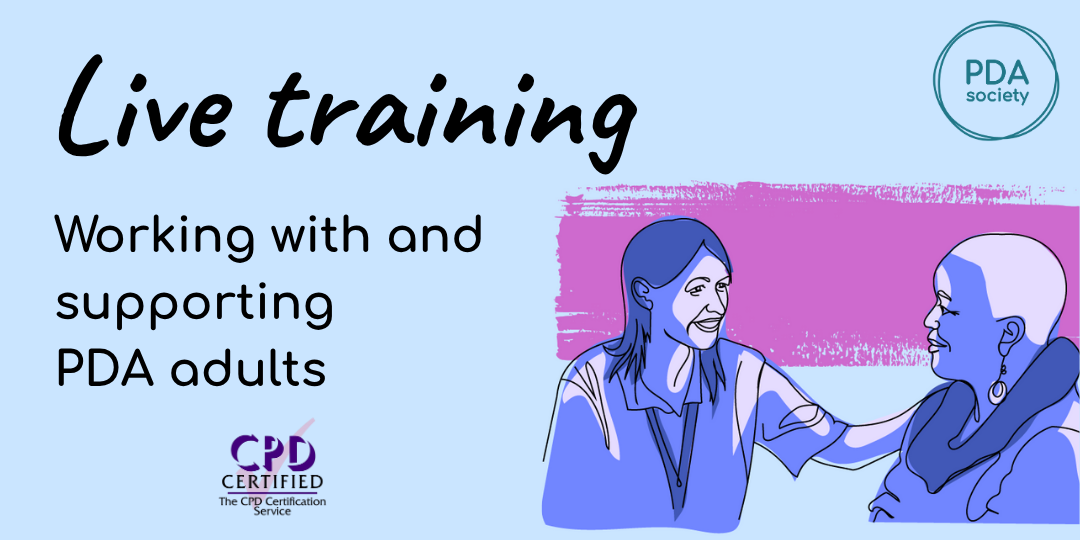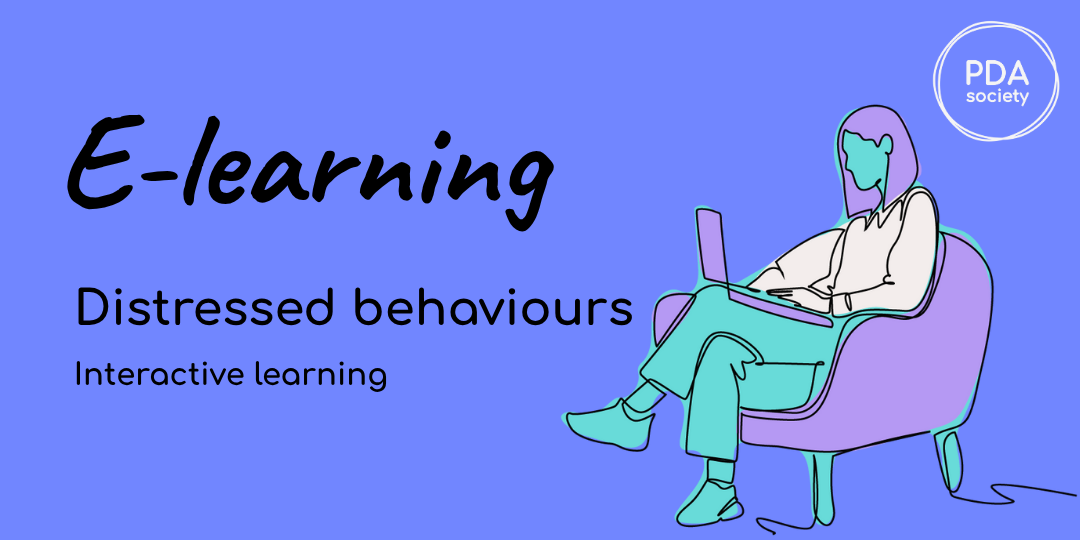
Overview
Tuesday 11th November 2025, 9.30am – 1.30pm (GMT)
CPD Accredited | Online Training
This course is designed for professionals supporting PDA adults—whether formally diagnosed, self-identified, or exploring the profile. It is particularly relevant for those working in adult residential or social care settings, as well as personal assistants employed by families to provide direct support.
The session will explore person-centred approaches to building trusting partnerships based on flexibility and collaboration.
Topics include:
-
What PDA is and how it can feel
-
Demands and their effects
-
Helpful approaches and good support
-
Considering individual needs
-
Collaborative problem-solving
-
Resources and further support
Recordings
-
Can’t attend live? Recordings will be available in your training hub account for 14 days after each session.
-
Please note: Q&A sessions will not be recorded to protect delegate confidentiality.
Practical Details
-
Please book only if you can attend both sessions; refunds or transfers are not possible once the course has started.
-
Refunds or transfers are available up to 7 days before the first session.
-
We recommend joining 5–10 minutes early to check your setup – we cannot delay the start once underway.
-
Delegates will need access to the chat function.
-
Tickets are for individual use; links must not be shared.
-
Limited places available – book early to secure your spot.
If cost is a barrier, please contact our training team to discuss support options.
Important Notes
-
We can also deliver this course for organisations (as a single block or across two sessions).
-
Please let us know about any additional needs when booking so we can make arrangements.
-
The PDA Society may substitute speakers if necessary.
-
Education, healthcare, and legislation discussed will relate to England.
-
Safeguarding is a priority: concerns about a child or adult at risk may need to be shared with relevant authorities.
- All resources and materials shared during any live training event are © PDA Society. They are provided for the personal use of attendees only and must not be copied, shared, or distributed outside of the session, nor used to deliver training without prior written permission from the PDA Society. Please see our training hub terms and conditions.




Tiana
This was a really useful course with an overview of useful approaches that I could use in my role as a support worker with a PDAer
Blake
It was really helpful in understanding the PDA behaviour more and knowing how to work around it, with resources shared to understand it even further